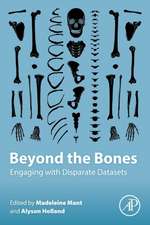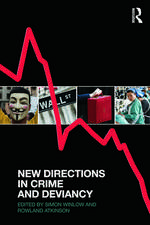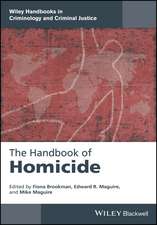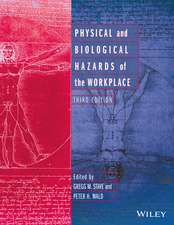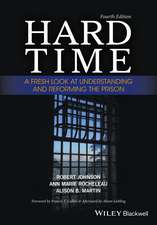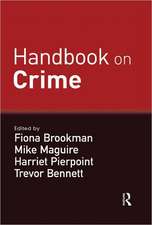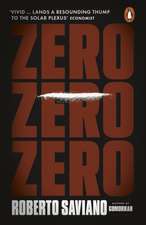Criminal Identities and Consumer Culture: Crime, Exclusion and the New Culture of Narcissm
Autor Steve Hall, Simon Winlow, Craig Ancrumen Limba Engleză Hardback – sep 2008
This book will be of interest to undergraduates, postgraduates, researchers and lecturers in all fields within the social sciences, but especially criminology, sociology, social policy, politics and anthropology.
| Toate formatele și edițiile | Preț | Express |
|---|---|---|
| Paperback (1) | 380.21 lei 6-8 săpt. | |
| Taylor & Francis – sep 2008 | 380.21 lei 6-8 săpt. | |
| Hardback (1) | 1005.80 lei 6-8 săpt. | |
| Taylor & Francis – sep 2008 | 1005.80 lei 6-8 săpt. |
Preț: 1005.80 lei
Preț vechi: 1226.58 lei
-18% Nou
Puncte Express: 1509
Preț estimativ în valută:
192.47€ • 205.81$ • 160.47£
192.47€ • 205.81$ • 160.47£
Carte tipărită la comandă
Livrare economică 17 aprilie-01 mai
Preluare comenzi: 021 569.72.76
Specificații
ISBN-13: 9781843922568
ISBN-10: 1843922568
Pagini: 264
Dimensiuni: 156 x 234 x 23 mm
Greutate: 0.61 kg
Ediția:1
Editura: Taylor & Francis
Colecția Willan
Locul publicării:Oxford, United Kingdom
ISBN-10: 1843922568
Pagini: 264
Dimensiuni: 156 x 234 x 23 mm
Greutate: 0.61 kg
Ediția:1
Editura: Taylor & Francis
Colecția Willan
Locul publicării:Oxford, United Kingdom
Cuprins
Preface 1. Introduction: The Return to Motivation 2. Life on the Precipice: Economic Change and Acute Marginalisation 3. Consumption and Identification: Some Insights into Desires and Motivations 4. Criminal Biographies: Two Case Studies 5. Consumerism and the Counterculture 6. Critical Reflections on the Intellectual Roots on Post-war Criminological Theory 7. Myths of Exclusion and Resistance: A Critique of some Current Thinking on Crime and Culture 8. Consumerism, Narcissism and the Reorientation of the Western Super-ego 9. Conclusion: Consumerism, Crime and Pseudo-pacification Process
Notă biografică
Steve Hall is Senior Lecturer in Criminology at Northumbria University, UK.
Simon Winlow is Lecturer in Sociology and Criminology at the University of York, UK.
Craig Ancrum is Senior Lecturer in Criminology at the University of Teeside, UK.
Simon Winlow is Lecturer in Sociology and Criminology at the University of York, UK.
Craig Ancrum is Senior Lecturer in Criminology at the University of Teeside, UK.
Recenzii
'This book is criminological scholarship at its best: insightful, original, provocative and impassioned. Its central argument, that the rise of market culture and narcissistic consumerism lie at the heart of contemporary crime problems, deserves to be widely read, understood and appreciated.' − Dr Majid Yar, Professor of Sociology, University of Hull, UK
'When criminologists look back in 50 years' time at those books that pushed critical criminology forward they'll point to Criminal Identities and Consumer Culture. Frankly, if you don't love this book you shouldn't be a criminologist.' − Professor David Wilson, Centre for Criminal Justice Policy and Research, Birmingham City University, UK
'...theoretically advanced and written with passion and flair...'
'It is a larger than life portrayal of some elements of working-class criminal life to be more precise, but the work is nonetheless ambitious, forthright and bold. Their thesis is detailed and provocative and will appeal to a range of audiences and has been very positively received by leading criminologists as the plaudits on the back cover attest.'
'The book adds a great deal to the critical criminology literature and criminologists (and sociologists with an interest in crime) will read it with interest.'
-Tracy Shildrick, Professor of Sociology, University of Teesside, in Sociology vol 45 no 2 p.343-348
'When criminologists look back in 50 years' time at those books that pushed critical criminology forward they'll point to Criminal Identities and Consumer Culture. Frankly, if you don't love this book you shouldn't be a criminologist.' − Professor David Wilson, Centre for Criminal Justice Policy and Research, Birmingham City University, UK
'...theoretically advanced and written with passion and flair...'
'It is a larger than life portrayal of some elements of working-class criminal life to be more precise, but the work is nonetheless ambitious, forthright and bold. Their thesis is detailed and provocative and will appeal to a range of audiences and has been very positively received by leading criminologists as the plaudits on the back cover attest.'
'The book adds a great deal to the critical criminology literature and criminologists (and sociologists with an interest in crime) will read it with interest.'
-Tracy Shildrick, Professor of Sociology, University of Teesside, in Sociology vol 45 no 2 p.343-348
Descriere
Offering the first in-depth investigation into the relationship between today's crinimal identities and consumer culture, this book uses unique data - taken from criminals locked in areas of permanent recession - to uncover feelings and attitudes towards a variety of criminal activities.

